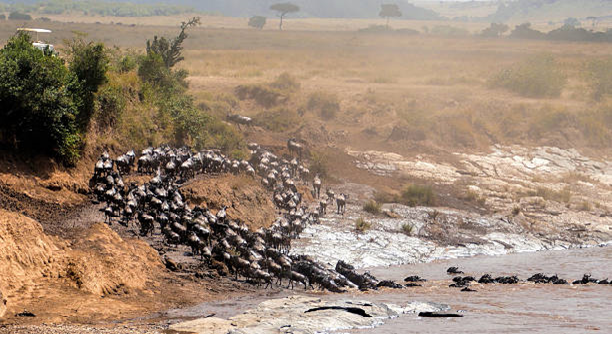Marangu route distance
The Marangu route is one of the popular routes for climbing Mount Kilimanjaro in Tanzania. The distance of the Marangu route depends on the starting point and the trekking itinerary taken. The total distance of the Marangu route is approximately 72 kilometers (or 44.7 miles) from the gate to the summit and back down.
The Marangu route typically takes 5-6 days to complete, with daily trekking distances ranging from 7 to 15 kilometers (or 4.3 to 9.3 miles). The exact distances covered each day can vary depending on the tour operator and the pace of the climbers.
It's worth noting that while the Marangu route is one of the shorter routes up Kilimanjaro, it is also one of the steeper and more strenuous routes due to the rapid ascent profile. Climbers should be physically fit and acclimatize properly to reduce the risk of altitude sickness.
Factors Influencing Success on the Marangu Route
The Marangu Route's success rate is generally lower compared to other Kilimanjaro routes, largely due to its shorter itinerary and rapid altitude gain. Most treks on this route are completed in 5 days, which doesn’t provide enough time for proper acclimatization, though a 6-day itinerary is strongly recommended to improve success rates. Additionally, the quick ascent increases the likelihood of altitude sickness, a significant factor that hinders summit attempts. The route's popularity also means it is often crowded, which can disrupt the trekking experience and pacing. While the hut accommodations provide comfort, they can create a false sense of security, causing some climbers to underestimate the importance of preparation.
Despite these challenges, climbers can improve their chances of reaching the summit with the right approach. Opting for a 6-day itinerary provides extra acclimatization time, while physical preparation, including cardio and elevation training, builds stamina for the trek. Staying hydrated, eating energy-rich meals, and maintaining a steady pace following the "pole, pole" (slowly, slowly) principle are essential strategies. Packing high-quality gear and working with experienced guides who monitor health and provide advice are critical steps to overcoming the Marangu Route's challenges and ensuring a successful climb.
How to climb marangu route
Choose a reputable tour operator: Climbing Kilimanjaro requires the support of experienced guides and porters, so it's important to choose a reputable tour operator with a good track record. Look for a company that is licensed, employs trained and experienced guides, and treats its porters fairly.
Acquire necessary permits: You will need to obtain permits from the Kilimanjaro National Park before starting your climb. Your tour operator will typically take care of this for you.
Pack and prepare for the climb: Make sure you have all the necessary gear and equipment for the climb, including sturdy hiking boots, warm clothing, a sleeping bag, and a backpack. It's also important to train physically and mentally to prepare for the climb.
Begin the climb: The Marangu Route typically starts at Marangu Gate on the southeastern side of the mountain. From there, you will trek through lush rainforests, moorlands, and alpine deserts, stopping at designated huts along the way for meals and rest.
Summit day: The final push to the summit typically starts in the early hours of the morning, with a climb to Uhuru Peak, the highest point on the mountain. The ascent is challenging but manageable for most people, and the views from the summit are stunning.
Descend and celebrate: After reaching the summit, you will descend back down the mountain via the same route, typically taking an additional day or two. Once you reach the bottom, take some time to celebrate your achievement and reflect on your experience.
Marangu route Tips
Acclimatize properly: Acclimatization is key to avoiding altitude sickness and ensuring a safe climb. Take the time to adjust to the altitude and climb slowly, following the guidance of your guides.
Drink plenty of water: Staying hydrated is important at high altitude, so make sure to drink plenty of water throughout the climb.
Bring warm clothing: Temperatures can drop significantly at high altitude, so make sure to pack warm clothing, including a hat, gloves, and a down jacket.
Pack light: You will need to carry your own gear and supplies during the climb, so make sure to pack only what you need and keep your pack as light as possible.
Hire a reputable tour operator: Climbing Kilimanjaro requires the support of experienced guides and porters, so make sure to hire a reputable tour operator with a good track record.
Train beforehand: Climbing Kilimanjaro requires a good level of physical fitness, so make sure to train beforehand by hiking, running, and doing other cardio exercises.
Bring cash for tips: It's customary to tip your guides and porters after the climb, so make sure to bring enough cash to cover these tips.
Respect the environment: Mount Kilimanjaro is a unique and fragile environment, so make sure to respect the flora and fauna, and follow the Leave No Trace principles.



